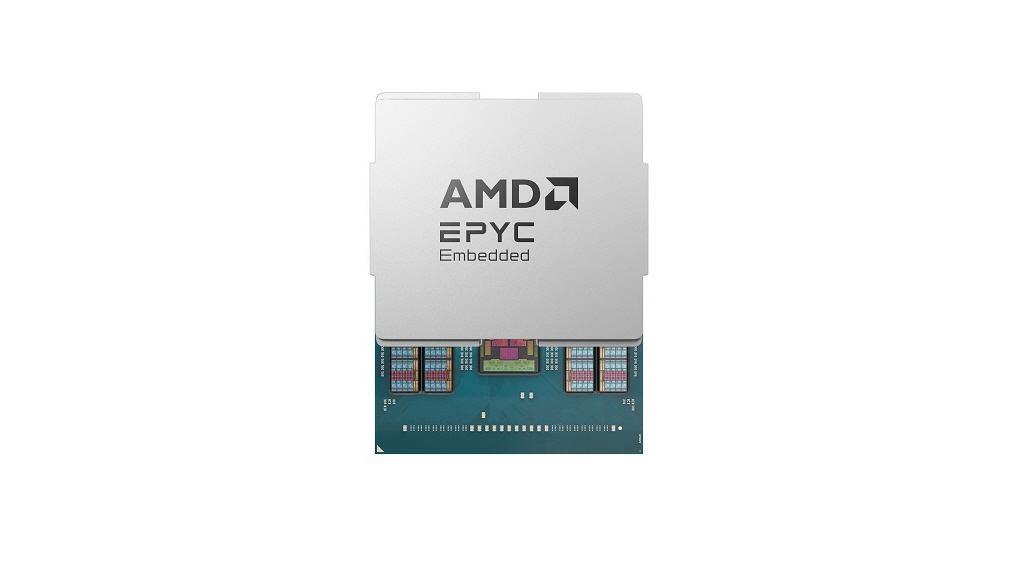AMD가 고성능 ‘젠 5(Zen 5)’ 아키텍처를 기반으로 하는 최신 임베디드 프로세서인 ‘5세대 AMD EPYC 임베디드 프로세서(AMD EPYC™ Embedded)’를 발표하며, 네트워크, 스토리지, 엣지 시장에서의 입지를 더욱 강화하며, 임베디드 시장 공략을 본격화했다.
네트워크·엣지·스토리지 시장 공략 강화
‘젠 5’ 아키텍처, 기존比 1.6배 성능 향상
AMD가 고성능 ‘젠 5(Zen 5)’ 아키텍처를 기반으로 하는 최신 임베디드 프로세서를 통해 네트워크, 스토리지, 엣지 시장에서의 입지를 더욱 강화하며, 임베디드 시장 공략을 본격화했다.
AMD가 11일 독일 뉘른베르크에서 열린 ‘임베디드 월드’에서 최신 임베디드 프로세서인 ‘5세대 AMD EPYC 임베디드 프로세서(AMD EPYC™ Embedded)’를 발표했다.
이번에 공개된 AMD EPYC 임베디드 9005 시리즈는 고성능 ‘젠 5(Zen 5)’ 아키텍처를 기반으로 네트워크, 스토리지, 산업용 엣지 시스템에 최적화된 성능과 긴 제품 수명을 제공하며, 시스템 복원력을 강화한 것이 특징이다.
이 프로세서는 시스코와 IBM 등의 차세대 플랫폼에 최초로 탑재되며 업계의 주목을 받고 있다.
AMD EPYC 임베디드 9005 시리즈 프로세서는 단일 소켓에서 8∼192개의 코어를 제공하며, 연산 집약적인 임베디드 애플리케이션을 위한 탁월한 성능을 발휘한다.
특히 ‘젠 5c(Zen 5c)’ 코어가 적용된 일부 제품은 경쟁 제품 대비 최대 1.3배 향상된 와트당 성능을 기록하며, DDR5 메모리 최대 6TB 및 CXL® 2.0을 통해 최대 160개의 PCIe® Gen5 레인 지원이 가능하다.
이를 통해 네트워크와 스토리지 시스템의 데이터 전송 속도를 대폭 개선했다.
AMD는 이번 프로세서가 기존 대비 최대 1.6배 더 뛰어난 데이터 처리 성능을 제공한다고 밝혔다. 이는 네트워크 방화벽, 스토리지 시스템, 산업용 제어 애플리케이션 등에 이상적인 성능을 갖췄음을 입증하는 것이다.
5세대 AMD EPYC 임베디드 프로세서는 긴 제품 수명, 시스템 복원성 및 보안성을 한층 강화한 점이 주목된다. AMD는 임베디드 제품에 대해 최대 7년간 제조 지원을 제공하며, 시스템의 예상치 못한 다운타임을 최소화하기 위해 NTB(Non-Transparent Bridging) 기술과 DRAM 플러시 기능을 제공한다. 또한, 듀얼 SPI를 통해 플랫폼 신뢰성을 확보하고 임베디드 시스템의 안정적인 운영을 지원한다.
특히, 욕토(Yocto) 프레임워크를 지원해 고객이 커스텀 리눅스 배포판을 개발할 수 있도록 하며, SPDK와 DPDK를 활용해 네트워크 및 스토리지 워크로드의 데이터 처리 성능을 최적화한다.
AMD는 새로운 프로세서를 시스코와 IBM 등 업계 주요 파트너와 협력해 선보였다. 시스코는 방화벽 플랫폼에서 AMD의 최대 192코어를 활용해 시장 요구에 부응하는 확장성과 성능을 구현했으며, IBM은 자사의 스토리지 시스템에서 높은 데이터 가용성과 안정성을 달성하는 데 기여했다고 밝혔다.
AMD 적응형 및 임베디드 컴퓨팅 부문의 살릴 라지 수석 부사장은 “AI와 데이터 중심의 시대에 맞춰 임베디드 플랫폼에서도 더 높은 성능과 효율성이 요구된다”며 “AMD의 새로운 프로세서는 고객이 까다로운 ‘올웨이즈온’ 환경에서도 탁월한 시스템을 설계할 수 있도록 지원한다”고 말했다.
AMD EPYC 임베디드 9005 시리즈는 현재 샘플링 단계에 있으며, 2025년 2분기부터 양산에 들어갈 예정이다. 해당 프로세서는 이전 세대인 AMD EPYC 임베디드 9004 시리즈와 호환되는 SP5 소켓 폼팩터로 제공되어 고객이 간편하게 업그레이드할 수 있다.
